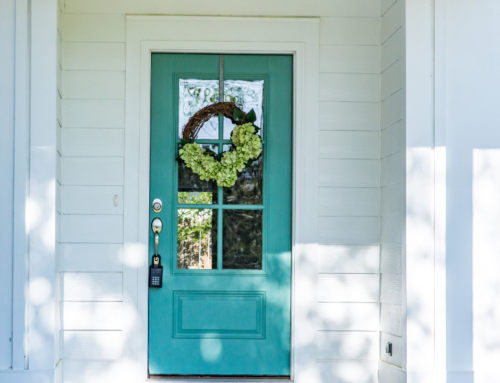
Planning to buy a home? You’ve probably come to realize that becoming a homeowner requires a lot of planning. Possibly the most critical part of planning will be your financial future as a homeowner. That said, we’ve put together 5 helpful tips so that you can feel financially secure before and during your new-found homeownership.
1. Create a Budget Before Buying a Home – Not After
Responsible homeownership requires creating a budget before you take the keys. Plan for all monthly expenses and know that homeownership costs are bound to extend beyond just the mortgage; you’ll also need to think about budgeting for maintenance, insurance, property taxes, and utilities.
Make sure your budget is comfortable and tailored to your lifestyle. Becoming a homeowner should enrich your life, not make you feel overextended and unable to do things you enjoy.
Focus on making this budget realistic – not overly optimistic. That means allowing wiggle room for any financial hiccups.
There are different approaches for creating a budget so research which type will be easiest for you to implement and track. Or check out this article on 3 Methods for Building a Monthly Budget
2. Check and Improve Your Credit Score
Your credit score plays a large role in determining the types of loans you’ll qualify for as well as interest rates. Both favorable loan terms and rates can potentially save you thousands over the life of your loan so don’t underestimate what your credit score can do for you.
Does your score need some work? A few easy ways to boost your credit score are to focus on paying bills on time, reducing credit card balances, and avoiding any new debt, if possible. Free credit reports are available once a year so don’t hesitate to snag a copy of yours. Also, here are some helpful resources for improving and maintaining credit.
3 Common Mistakes to Avoid When Trying to Boost Your Credit Score
Improving and Maintaining Your Credit Score for a Michigan Home Loan
Avoid These Credit Mistakes Before Purchasing a Home
3. Understand Loan Options and Pre-Approval
There are quite a few different mortgage loan options available, each with their own unique terms, rates, and requirements. Consulting with an experienced lender and educating yourself on these options will help you make informed decisions that align with your own financial picture and long-term goals. For example, conventional loans, FHA loans, VA loans, and USDA loans all have unique benefits and requirements.
Getting pre-approved for a mortgage before house hunting is a way to streamline the buying process—not to mention a way to help you get clear on what you can afford. Pre-approval also indicates to sellers that you are a serious and financially vetted buyer. This is especially critical in a competitive market with multiple bid situations.
Why Pre-Approval is Even More Important This Year
4. Save for a Down Payment and Closing Costs
Building savings for a down payment and closing costs isn’t just a “should-do”—it’s a must. A larger down payment will help reduce your monthly mortgage payments and may eliminate the need for private mortgage insurance (or PMI), making homeownership that much more affordable in the long run. Closing costs typically range from 2% to 5% of the home’s purchase price, so be sure to budget for these as well.
However, saving for a down payment might not be as daunting as you think. Contrary to popular belief, you don’t have to put down a 20% down payment. For example, there are even some loan programs that offer 100% financing. Don’t be afraid to look into a few of the many down payment assistance programs available, either. These programs provide grants to qualified buyers, which makes becoming a homeowner far more accessible.
Receive up to 10k in Downpayment Assistance in Michigan with a MSHDA Loan
New Rate Relief Mortgage Program for Michigan First-Time Homebuyers
5. Build an Emergency Fund
Having an emergency fund is like having a safety net—one that can provide financial stability when unexpected circumstances pop up. Aim to set aside three to six months’ worth of living expenses. In the event that you are suddenly out of work, have a medical situation or a home-related emergency, this cushion is important for your wallet and most importantly, your peace of mind.
Failing to set up an emergency fund is just inviting Murphy’s law to stop by for a visit, and the last thing you want is your homeownership experience to feel burdensome and stressful. Homeownership should do just the opposite. It should foster feelings of freedom and a sense of security. Having a significant fund for emergencies will help you do just that.
About Julie Krumholz from Superior National Bank
Ready to start the homebuying process for 2024? Julie Krumholz from Superior National Bank can help.
With over 30 years of experience, Julie Krumholz has experienced nearly every facet of the mortgage industry, from processing, closing, loan origination, underwriting, QC auditing, and even co-owning a mortgage brokerage firm. Julie uses her wealth of experience to match homebuyers with the best mortgage program for their needs and helps streamline the mortgage process.
Call Julie Krumholz for help with your homebuying needs at 586-382-5482





